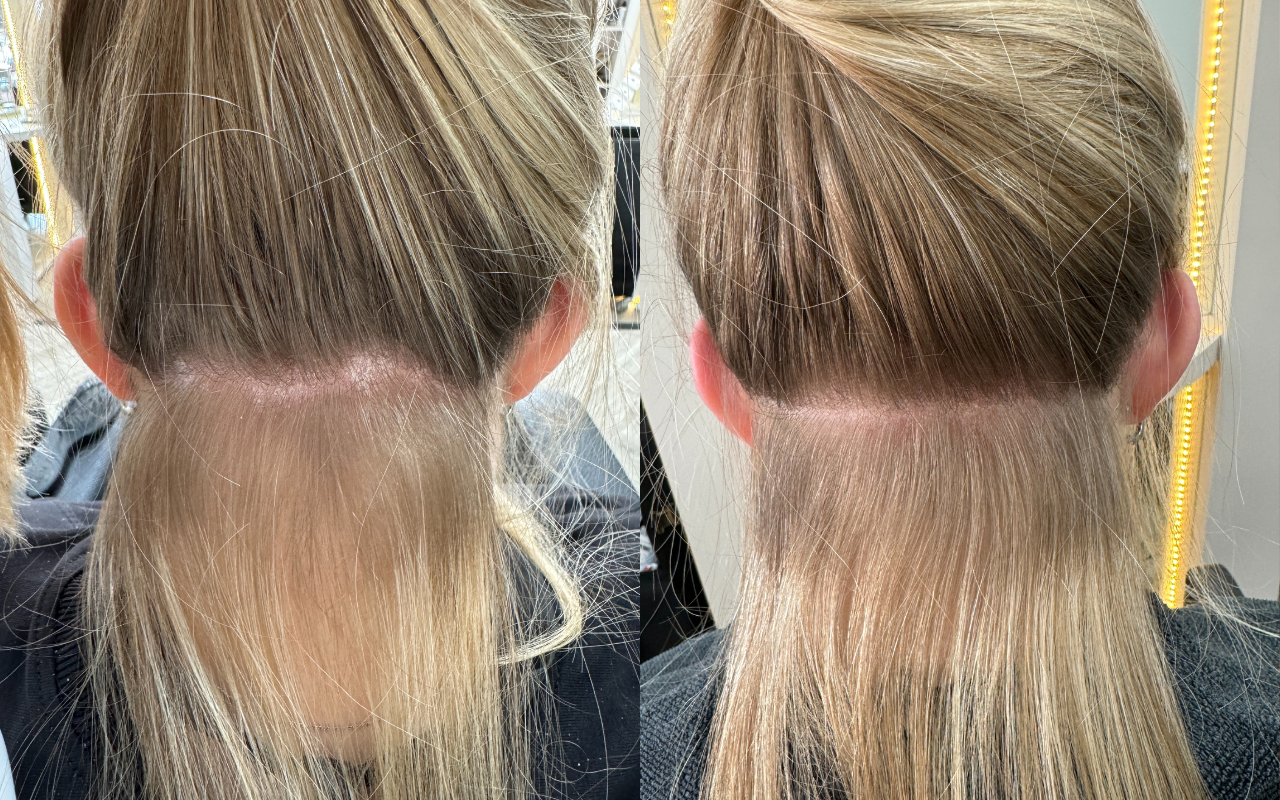Feeling more stressed than normal? Chances are you are.
April is Stress Awareness Month and with reports showing that 65% of us are feeling more stressed than when Covid-19 started we thought we would share some useful information about stress and how to manage it. Our founder Laura Tudor knows stress all too well after experiencing the physical effects of long term stress back in 2017 which eventually led to her hair falling out. The process of natural recovery is what led to the inception of CENTRED and we are now on a mission to help as many people as possible avoid reaching burn out by increasing awareness on stress and how it effects the body and our health.
What is stress awareness month?
Stress Awareness Month has been held every April, since 1992 to increase public awareness about both the causes and cures for our modern stress epidemic. Despite this running for 29 years we have got a long way to go. According to the Mental health Foundation 74% of UK adults have felt so stressed at some point over the last year they felt overwhelmed or unable to cope.
We have all experienced stress. Stress is a mechanism built in to humans as well as animals and is an evolutionary response that has helped organisms to escape from danger. For this purpose, stress is extremely useful as the stress response primes the body to be able to move away from danger. The downside in our modern way of living is that we are no longer hunted by predators that want to eat us yet many of us live continuously in stress yet don't understand that the long term affects of stress hormones can damage our health.
So why are we still so stressed?
Let's look at the different types of stress and firstly share some wisdom from renowned best selling author Dr Joe Dispenza who has written extensively about the role of the mind on stress and our innate ability to heal ourselves.

Dr Joe explains that there are 3 types of stress and each one kicks us out of balance.
- Physical stress - such as temperature, accidents, injury, and trauma.
- Chemical stress - such as viruses, bacteria, hormones, heavy metals, blood sugar levels, food, and alcohol.
- Emotional stress - such as traffic, mortgages, angry customer, internet connection, planning a wedding or keeping surprise party secret.
Whilst we are hardwired to cope with the stress response in order to help us survive, living in the stress response for long periods of time can interfere with the bodies functions such as hair growth and even lead to disease.
According to Dr. Joe Dispenza, stress hormones act like a drug. They give our body and brain a rush of energy and we become addicted to the adrenalin in the stress hormones. We then use our problems and conditions as well as people in our lives to reaffirm our emotional addiction.
What can we do?
It isn't all doom and gloom however and the important thing to note is that negative thinking patterns can be changed. Habitual thinking patterns are a bit like computer programs and as so can be re-programmed. A great first step is to just become more aware of the thoughts you are having and how they may be creating a stress response. By creating more awareness of thoughts we can detach from negative thoughts that can lead to stress.
Take a look at the many ways stress can be reduced through activities and practices such as -
- Mediation
- Yoga & exercise
- Work/life balance
- Good quality and amount of sleep
- Nourishing body with heathy whole foods and plenty of water
- Mindfullness
- Reading
- Positive affirmations and gratitude
- Breath-work
- Take a relaxing bath
- Self care & morning routine
How CENTRED can help
Our entire range is designed to help reduce stress whilst creating an opportunity to unwind through such a simple task as washing your hair. From our signature fragrance to our ingredients and packaging we have carefully considered each component of our range to help you create calm and balance. We know that healthy hair comes from within and our flourishes when we have a relaxed state of mind and good wellbeing.

Tender Love & Hair Supplement - Specifically designed to help reduce stress, boost energy levels and support the immune system, helping combat stress and promote health and wellbeing.
Bamboo extract for hair growth - Silica found in Bamboo is a vital mineral for strong healthy hair, boosting strength, shine and suppleness.
Biotin - Plays a vital role in helping the body to convert nutrition, particularly Amino Acids which are the building blocks of protein and what hair is made of.
Aloe Vera - Known for its hair growth capabilities Aloe Vera is also one of natures finest healers. Repairs skin cells in the scalp.
Amino Acids - Hair is made of Keratin, a protein of which Amino Acids are the building blocks and vital for the creation of keratin.
Zinc - vital for strengthening the immune system and is highly regarded from improving the health of hair, skin and nails.
Iron - Vital for the production of red blood cells. Lack of Iron can cause severe tiredness and lead to hair loss.
Vitamin C - A powerful Anti-Oxidant known for improving the body's ability to absorb nutrients, particularly Iron.
Much more than just hair growth supplements or vitamins for hair.

En-Root Scalp Treatment - Our hero product is designed to be the ultimate calming ritual. We designed our En-Root treatment to work with scalp massage to help relieve tension whilst the aromatherapy from the detoxifying oils give you that at home spa feeling.
Peppermint, Rosemary and Castor Oils - Stimulates blood flow and circulation to the hair follicles
Tea Tree Oil - Anti Bacterial, Anti Microbial & Anti Inflammatory properties
Salicylic Acid - Gently exfoliates, removing dead skin & product build up
Jojoba, Chamomile and Hemp Seed Oils - Soothes and calms the scalp
Olive, Argan, Jojoba & Coconut Oil - Anti Oxidant rich moisture
Scalp flare ups and other issue often arise from stress, this oil is perfect to use as an itchy scalp treatment to help soothe and calm angry an angry crown.
Breathing Techniques
Another great ambassador for combatting stress is neurobiologist Andrew Huberman who explains how using the diaphragm is one of the quickest ways to activate the sympathetic nervous system to help reduce stress in real time. Check out this video for some expert insights.
We hope you find this blog useful. We want to hear from you! Please don't hesitate to get in touch, we are always here to help hello@wearecentred.com
For more information take a look at at Stress.org for more information along with workshops and guides for helping to mange and reduce stress.



